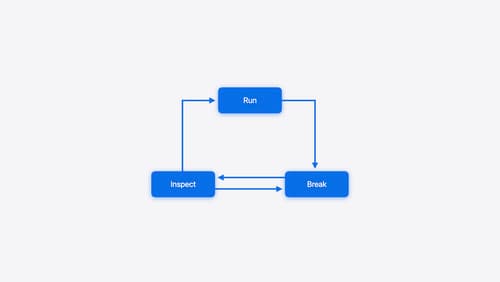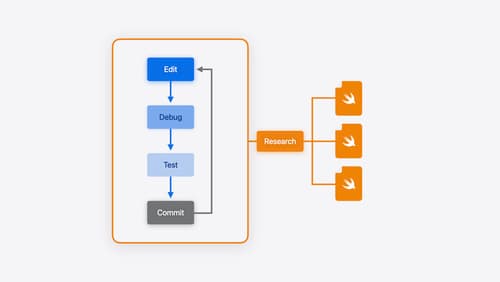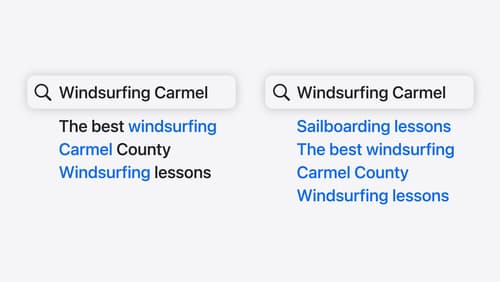I unwrap the app executable bundle. There is a my app executable mach-o file and another file that has the same name and has prefix like "app_name.debug.dylib" . What is it for ?
Asked on 2024-08-07
1 search
The file with the prefix "app_name.debug.dylib" is likely related to debugging. Specifically, it is a debug symbol file that contains additional information used by debuggers like LLDB to provide more detailed insights during a debugging session. This file helps in mapping the executable code back to the source code, allowing you to see line numbers, variable names, and other useful information when debugging your app.
For more detailed information on debugging and related tools, you can refer to the session Run, Break, Inspect: Explore effective debugging in LLDB.

Run, Break, Inspect: Explore effective debugging in LLDB
Learn how to use LLDB to explore and debug codebases. We’ll show you how to make the most of crashlogs and backtraces, and how to supercharge breakpoints with actions and complex stop conditions. We’ll also explore how the “p” command and the latest features in Swift 6 can enhance your debugging experience.

Xcode essentials
Edit, debug, commit, repeat. Explore the suite of tools in Xcode that help you iterate quickly when developing apps. Discover tips and tricks to help optimize and boost your development workflow.

Support semantic search with Core Spotlight
Learn how to provide semantic search results in your app using Core Spotlight. Understand how to make your app’s content available in the user’s private, on-device index so people can search for items using natural language. We’ll also share how to optimize your app’s performance by scheduling indexing activities. To get the most out of this session, we recommend first checking out Core Spotlight documentation on the Apple Developer website.
